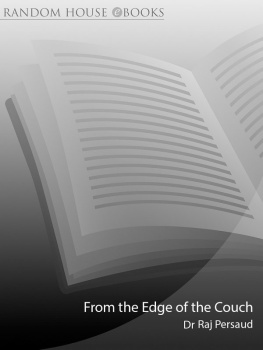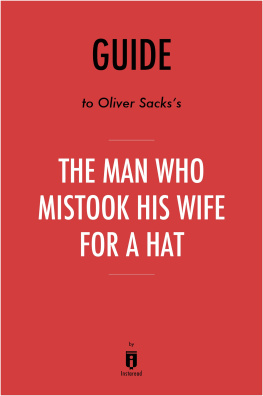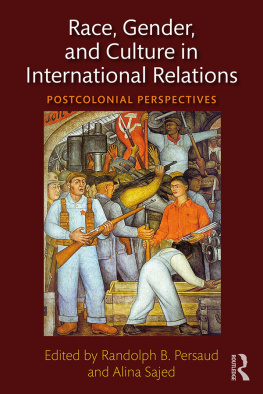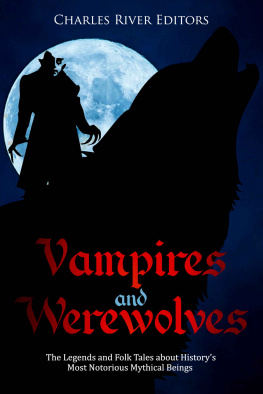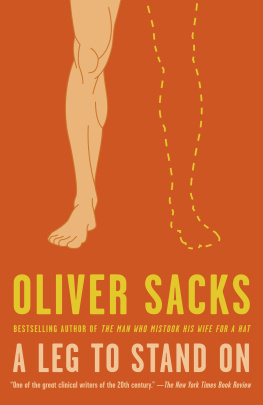About the Book
You may think that vampires and werewolves are merely the creation of Hollywood and legend but, as Dr Raj Persaud reveals, there are bizarre people out there who are convinced they really are werewolves, vampires and other incredible creatures. As a result, they behave in ways beyond our wildest fantasies. But could these phenomena in fact arise from our most disturbing dreams?
In the tradition of Oliver Sacks bestselling book, The Man Who Mistook His Wife for a Hat, Dr Raj Persaud uses authentic case studies to explain current thinking on brain function and emotional disorders. In one case, a man could get his sexual kicks only by being crushed in garbage trucks, while another successfully persuaded his wife she had been abducted by aliens. One man made love to his furniture; another believed he was really a tiger and conducted an affair with a tigress in the local zoo.
Through his analysis of these and other bizarre conditions, such as Alien Hand Syndrome where sufferers conclude that one of their own limbs is out to kill them Multiple Personality Disorder and Erotomania Dr Persaud suggests that we may not have as much free will and control over our bodies as we delusionally believe. Even more provocatively, in throwing open the usually secret world of the psychiatrists casebook, he proves that fact really is much stranger than fiction.
C ONTENTS
FROM THE EDGE OF THE COUCH
Dr Raj Persaud
This is for my son Sachin, who, in being born, dragged me back from the edge of the couch.
A BBREVIATIONS
| ADHD | Attention deficit hyperactivity disorder |
| AEA | Autoerotic asphyxia |
| BDD | Body dysmorphic disorder |
| CAWD | Chronic alternate-world disorder |
| CD | Capgras delusion |
| CS | Capgras syndrome |
| DID | Dissociative identity disorder |
| DMI | Delusional misidentification |
| GSM | Genital self-mutilation |
| IPD | Induced psychotic disorder |
| MAOI | Monoamine oxidase inhibitors |
| MHP | Monosymptomatichypochondriacal psychosis |
| MPD | Multiple personality disorder |
| MSBP | Munchausen syndrome by proxy |
| NVAW | National Violence Against Women Survey |
| OCB | Obsessive-compulsive behaviour |
| OCD | Obsessive-compulsive disorder |
| OMPI | Occupational mass psychogenic illness |
| ORS | Olfactory reference syndrome |
| PEA | Phenylethylamine |
| PTSD | Post-traumatic stress disorder |
| SPD | Shared psychotic disorder |
| SRS | Sexual reassignment surgery |
| TM | Trichotillomania |
| TS | Tourettes syndrome |
A CKNOWLEDGEMENTS
All single-authored books are really the result of collaborations. I must thank all those who made this work possible, in particular my marvellous wife, Francesca, who, as with all my undertakings, was the rock on which this is built. My hardworking agent Maggie Pearlstine provided the thoughtful guidance I have come to depend on, and she introduced me to the marvellous Brenda Kimber, my stalwart editor at Transworld, who, with the help of copy-editor Beth Humphries, sculpted my original manuscript into the shape you now hold. I am also grateful to Patrick Janson-Smith, who was the original inspiration for this book following a very informal discussion with him, and to Emma Dowson, my tennis doubles partner and PR manager at Transworld, who has never let me down either on or off the tennis court.
My thanks also to my secretary at the Maudsley Hospital, Sheila Banks, the paragon of efficiency who enables me to work part-time in the NHS and at the University and do other things as well. I am also supported ably by my team of community nurses, Asha Tait, Iqbal Surfaz, Pauline Laforge and Sandra Binney. I am particularly indebted to Professor Robin Murray, Dean George Szmuckler and Chief Executive Stewart Bell, the senior figures at the Institute of Psychiatry and the Maudsley Hospital whose support has made this large task possible.
But above all else I am indebted to all the discoverers of the case histories that appear in abridged form in this book; a list of their names follows, and I take this opportunity to record my grateful thanks for their permission for these cases to appear here.
Elsebet Steno Hansen, Tom G. Bolwig, Atsush Ichimura, Isao Nakajima, Hiroshi Juzoji, Richard OReilly, Ladi Malhotra, Anna Cantagallo, Luigi Grassi, Sergio Della Sala, Thomas N. Wise, Ram Chandran Kalyanam, Nicholas Broughton, Paul Chesterman, James Briscoe, Alan Anderson, Jakob Camp, Christopher M. Filley, Frank J. Jarrett, R. D. Goldman, P. Schacter, M. Katz, R. Bilik, I. Avigad, Srikala Bharath, Mehendra Neupane, Somnath Chatterjee, Roger Byard, Phillip D. Jaffe, Frank DiCataldo, Paul Mullen, Brian Spitz, Jordi Serra-Mestres, Mary M. Robertson, Anne-Marie ODwyer, Isaac Marks, H. Tei, M. Iwata, Y. Miura, Elke Richartz, Henning Wormstall, Tamara L. Hard, Randy O. Frost, N. Beecroft, L. Bach, N. Tunstall, R. Howard, S. Scheftel, Amy S. Nathan, Andrew M. Razin, Peter Mezan, M. L. Bourgeois, P. Duhamel, H. Verdoux, Dan J. Stein, Leon Le Roux, Colin Bouwer, Ben Van Heerden, E. Sobanski, M. H. Schmidt, Marjorie L. Hatch, C. S. Attila Kovcs, T. H. Pter, Eliezer Witztum, Yuly Bersudsky, Hanoch Mayodovnik, Moshe Kotle, Claire Draucker, Padmal De Silva, Amanda Pernet, Kerry O. Ferris, Judy T. Okimura, Scott A. Norton, Dr J. Arturo Silva, Gregory B. Leong, Tara OReilly, William Hirstein, V.S. Ramachandran, S. Tucker Landrum, Thomas P. Cornwall, S. J. Kiraly, D. H. Ropschitz, Harvey A. Rosenstock, Kenneth R. Vincent, John E. Rhodes, Simon Jakes, Rachel Forsyth, Yair Bar-el, Glenn Catalano, Hakan Ay, Dr Lewis, Ferdinand Buonanno, Thomas Wenzel, J. Modestin, G. Ebner, Walter Everaerd, David Ames, Arnold Waugh, Robin Powell, Neil Boast, Edi-Osagie, J. Patrick, Marc Feldman, Charles Ford, Elke Richartz, Henning Workstall, Sharon Zeitlin, Martin Goldstein, Missagh Ghadirian, Baak Ycel, Robert Cavanaugh, Srikala Bharath, Marc L. Bourgeois, B. D. Kelly, Anthony Samuels, Albert Roberts, Sophia Dziegielewski, Adriana Neagoe, Raj Shiwach, John Prosser, Richard Bryant, Mary Seeman, Atul Pande, L. B. Raschka, Ratnin Dewaraja, Richard Caplan, Judith Komaromi, Mike Rhodes, Brian McGuire, George L. Choon, Parva Nayer, Julia Sanders, Jo Johnstone, Rhodri Huws, K. M. Beier, Michael Heap, Paula H. Salmons, David J. Clarke, Eric Schendel, Ronald-Frederick C. Kourany, T. R. Dening, A. West, Aaron Kulick, Kiran Rao, Thomas OReilly, Robin Dunbar, Richard Bentall, Daniel E. Jacome, A. Kelly Forrest, Yukio Uchinuma, Yoshio Sekine, Laura Weiss Roberts, Michael Hollifield, Teresita McCarty, Claire L. Templeman, S. Paige Hertweck, K. R. Nicholls, T. S. Ananthanarayanan, Marianne Regard, Theodor Landis, John Money, Russell Jobaris, Gregg Furth, D. L. Gordon, Irene Bates, Michael Prendergast Lampert, A. Ernst Van Woerkom, Thomas E. Joiner Jr, Natalie Sachs-Ericsson, A. R. Tomison, W. M. Donovan.
There are more things in heaven and earth, Horatio,
Than are dreamt of in your philosophy.
Hamlet, I, v 166
INTRODUCTION
It is a far, far better thing to have a firm anchor in nonsense than to put out on the troubled seas of thought.
J. K. Galbraith
In my experience, both inside and outside my consulting rooms, practically everyone suffers from one of two basic delusions, and quite frequently both. The first is the delusion that we are extraordinarily wonderful in some way and it is peculiar and puzzling to us that the rest of the world hasnt realized this and accorded us due respect. The second is that we are a much more frightful and depraved individual than anyone realizes and sooner or later we are going to be found out.

